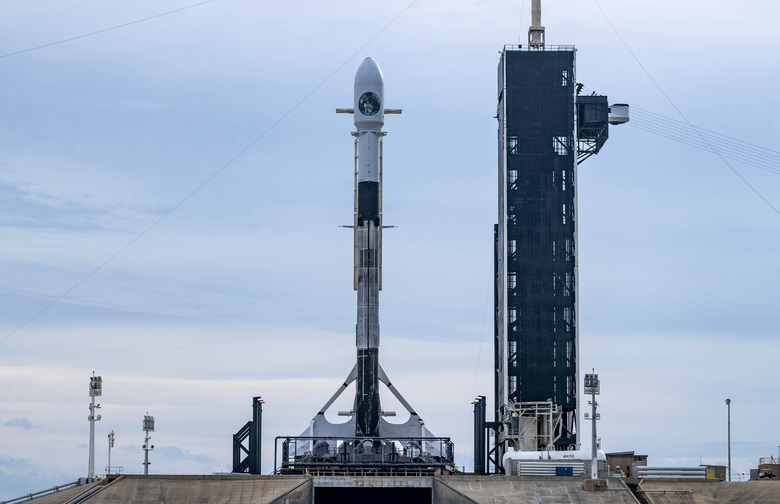SpaceX Just Set A Ridiculous Record
SpaceX made a name for itself by producing the first reusable and sustainable rocket platform. That platform, the Falcon 9, took some serious time to perfect, but the company now launches and lands them with such incredible regularity that it's barely even news anymore. That's really something, especially when you consider the many failures the company had to endure in getting to this point.
Now, with a successful launch and landing of a flight-proven Falcon 9 this past weekend, the company set a new record and is now incredibly close to nailing a huge milestone. The Falcon 9 that took off on Sunday and helped deliver a batch of 60 Starlink communications satellites into Earth orbit had already been sent skyward 8 times before. On Sunday it completed its 9th launch and landing, which is a record.
The spacecraft is now the first SpaceX rocket to complete nine missions, and if the company is lucky, it'll be the first to achieve double digits, too. As Gizmodo notes, the company's target has long been the 10-launch mark, and if it can achieve this milestone on a regular basis, its reusable rockets will help boost the company's bottom line in a big way.
Prior to launching this latest batch of Starlink satellites, the same rocket pushed the first uncrewed test mission of the Crew Dragon capsule to the International Space Station. It also participated in several other high-profile missions and, obviously, it stuck its landing every time.
But setting a record for successful reuse of its rockets is just one piece of SpaceX's business. The company is also putting a lot of its chips on its Starlink program, which endeavors to create a global internet satellite network that can be accessed regardless of whether you live in a big city or a rural area. Starlink is going to require a lot of satellites to work to its full potential, and while the company already has over 1,000 active satellites orbiting Earth, that's just a fraction of the number the company hopes to eventually have.
Going forward, the combination of reliable, reusable rockets will make it easier and less costly for SpaceX to build up its Starlink network and offer internet service to more people in more areas. Thus far, there are around 10,000 customers on the network, but it's still in its testing phase and hasn't been fully rolled out anywhere yet.
If the Falcon 9 that launched on Sunday can hit the 10-launch milestone it'll be interesting to see what SpaceX decides to do with it. It could either be retired, having made history as the most reliable rocket in the company's fleet, or it could be used again, adding to its record and further cementing it as a truly special vehicle. Time will tell.
